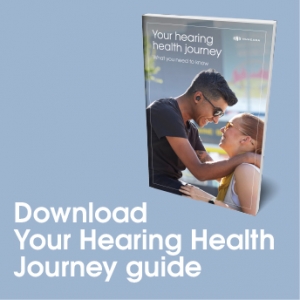
Auditory processing disorder (APD), also known as central auditory processing disorder (CAPD), is a condition that affects up to five percent of school-aged children. Children with this medical condition struggle to hear in the same manner as other children because their brains interpret sounds in a faulty manner. This is especially true of speech sounds. Left undiagnosed and untreated, APD can cause learning problems as well as speech and language delays.
It’s important to note that kids with this disorder often have normal hearing. The problem isn’t that they can’t hear sounds, it’s that they misunderstand what they do hear. It can become especially frustrating for the child when he or she misinterprets similar sounds such as ‘ga’ and ‘da.’
Common Symptoms of Auditory Processing Disorder in Children
While not all children with this condition display the same symptoms, the following tend to be the most common:
- Obvious confusion and asking “what?” a lot
- Poor spelling skills
- Potential for poor social skills
- Language develops later than their peers or older children in the family
- Inattentive behavior leading to distraction
- Greater difficulty when learning how to read
- Mishearing of certain words or sounds
- Struggle to hear correctly in a noisy environment
- Difficulty when attempting to follow directions with multiple steps
- Appears to not have as much information to work with as peers due to not interpreting it correctly
Parents who notice any of these symptoms in their child shouldn’t hesitate to visit a doctor for screening. With early diagnosis and intervention, most children with APD can stay on track with their peers.
Auditory Processing Disorder Consists of Three Distinct Conditions
According to Dr. Jack Katz, a medical pioneer in the identification and treatment of auditory processing disorder, the condition consists of three separate problems. The first of these is auditory memory. Due to this issue, children have difficulty memorizing facts and numbers and struggle with language and reading skills. One way this appears is that the child takes longer to retain his or her address and telephone number than other children. It’s also more challenging for them to retain lists and verbal instructions
The second part of this disorder includes problems with language processing, which presents the most issues for many children. Due to the way the brain processes spoken communication, kids with auditory processing disorder don’t always understand what others are asking them to do. They may also struggle to understand social skills and make friends. Oral tests are difficult, as is following spoken stories involving several different characters. Difficulties with language processing can also present as children shying away from conversations due to fear of how much time it would take to understand the speaker’s words and formulate a response to them.
Problems with the proper discrimination of sounds is a third component of this disorder. Children learn to talk by imitating the sounds they hear from the adults and other children around them. Because of the faulty brain signals, speech may sound very unclear. The child may drop word endings or run words together thinking they make up a single word. This in turn can impact how well kids with this disorder learn to read and spell.
Causes and Diagnosis of Auditory Processing Disorder
Although some children are born with this disorder, others develop it after experiencing head trauma, chronic ear infections, or lead poisoning. It’s also possible that the condition developed due to multiple or unknown causes. If an audiologist suspects auditory processing disorder, he or she will look for the following issues:
- Attention: The child can’t sustain attention long enough to complete a task.
- Cohesion: With this higher-level skill, people form inferences from things they hear or read. This, along with completing verbal math problems or understanding riddles, can be challenging for kids with auditory processing problems.
- Discrimination: It’s difficult for the child to differentiate between similar sounds or words.
- Figure-ground: This refers to a child’s inability to pay close attention in a noisy environment.
- Memory: The disorder makes it difficult for kids to remember such things as study materials, lists, and directions.
Once an audiologist has provided a firm diagnosis, the child’s family, peers, and teachers can all help him or her learn well despite the disorder.
IQbuds2 MAX
How to Help Auditory Processing Disorder in Children
Asking the child to look at whom he or she is speaking to and asking the speaker to use a slower rate and slightly higher voice pitch can help tremendously. At home, parents should provide a quiet, distraction-free environment to complete schoolwork. Both parents and teachers should ask the child to repeat directions back to ensure understanding and repeat them in a different way if not understood.


